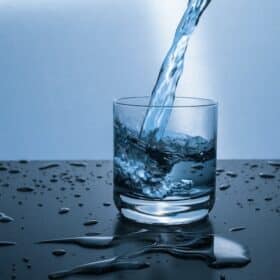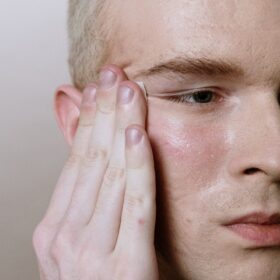
Contents
How to test for dehydration
Severe dehydration may be noticeable, but not all fluid intake has an effect, let’s spot when we’re not drinking enough and help prevent dehydration
Moderate dehydration may be bearable, but it can lead to a host of problems if we’re not careful. Low blood pressure, migraines… and so much more. We’ve probably all been dehydrated at some point in our lives, but if we carry on ignoring the issue, it may get worse.
So what should we look for? Especially if we start to feel symptoms of dehydration but, for whatever understandable reason, we dismiss the source as dehydration?
Beyond a push to simply replace lost fluids, there’s a range of preemptive measures we can take, and, more importantly, signs we can look out for. Of course, this is especially important if you’re training but equally important if you’re a human and need to do, well, anything at all.
Let’s run through some tips to steer clear of severe dehydration, keep your body’s fluids optimised and make sure you’re spotting the signs and symptoms of dehydration today.
No urine or dark urine
Not being able to pee is a classic sign of dehydration. And on the topic of urine, dark wee is also a sign of dehydration. While this isn’t usually denotive of severe dehydration, it’s still a big problem.
You can use a simple way of testing yourself now. Just check the colour of your pee when you next go for a wee – if it’s pale yellow (or paler) then you’re in the clear. If it’s dark, however you need to take on more fluids, as failing to do so will lead to you being severely dehydrated.
Dry skin
Dry skin is a natural sign of dehydration. But what’s more telling is if that skin doesn’t bounce back. From light liquid reduction to severe fluid loss, dry skin should be a warning sign.
Try pinching your hand. If the dry skin doesn’t bounce back to place after pinching it, it probably means you need to take on more fluids.
Heartbeat rapidity and breathing issues
This could be a sign of many things, so it’s important to read this carefully. A rapid heartbeat isn’t necessarily a problem, especially if you’ve just worked out. However, if those issues persist, then it could be a sign of severe dehydration.
Go Health UC writes, ”Fluid intake is crucial for organs like your heart, liver, kidneys and lungs to function properly. Therefore, you must visit a doctor to assess for dehydration if you experience these symptoms.”


Conclusion
These are just a few examples of issues and symptoms surrounding dehydration. If anything severe happens to you, then seek immediate medical attention. From excessive sweating to skin turgor issues, always be on the lookout for how these problems persist.
FAQs
Is mild dehydration an issue?
No, not necessarily. But it’s what it can lead to that becomes an issue. Stay vigilant.